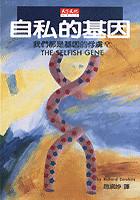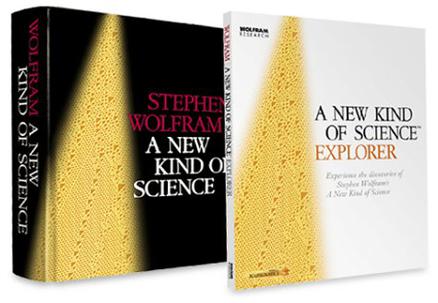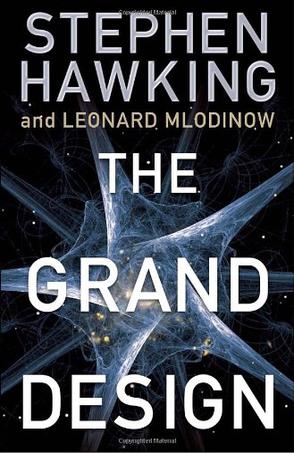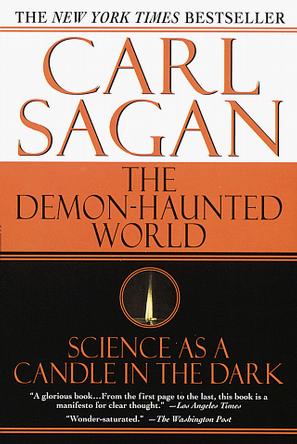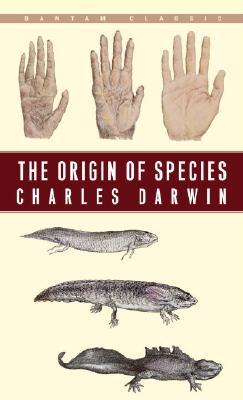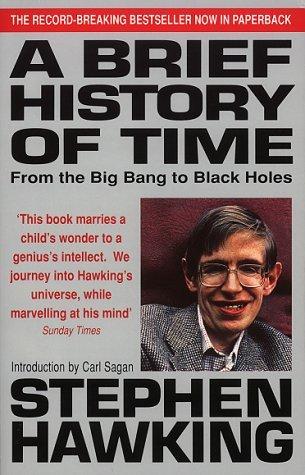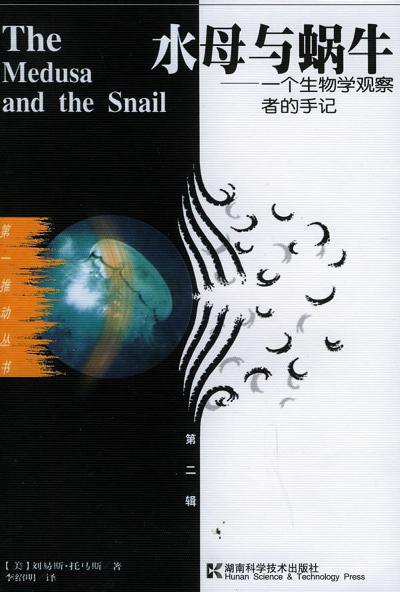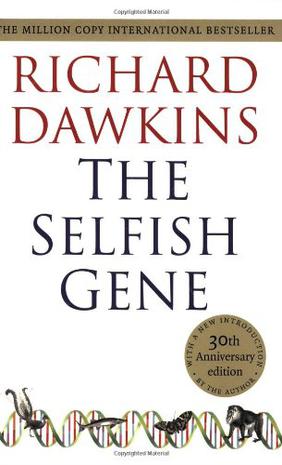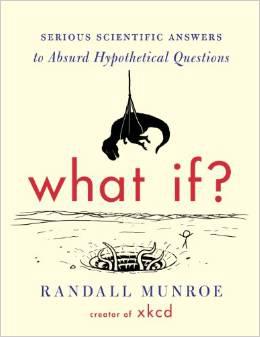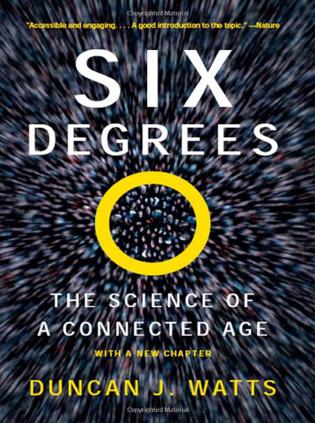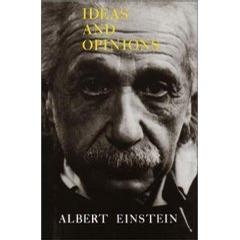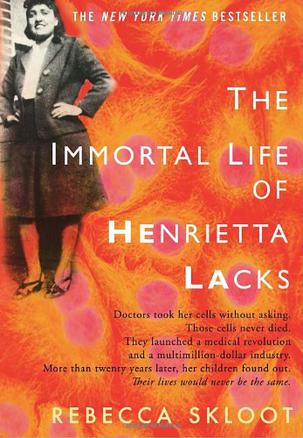欢迎来到相识电子书!
标签:Science
-
自私的基因
本書宛如一本有趣的推理小說,作者藉親切、生動的文字,解析生活中觸目可及的生物競爭與合作實例;並透過運動、賭博性遊戲,讓讀者深入了解「利他」與「自私」兩種生物本質。綿延數十億年的生命長河,幾多物種浮沈、來去,該如何延續「人類」的命脈,本書將可提供不少省思。 -
A Briefer History of Time
Stephen Hawking's worldwide bestseller, "A Brief History of Time", has been a landmark volume in scientific writing. Its author's engaging voice is one reason, and the compelling subjects he addresses is another: the nature of space and time, the role of God in creation, and the history and future of the universe. But it is also true that in the years since its publication, readers have repeatedly told Professor Hawking of their great difficulty in understanding some of the book's most important concepts. This is the origin of and the reason for "A Briefer History of Time": its author's wish to make its content accessible to readers - as well as to bring it up-to-date with the latest scientific observations and findings. Although this book is literally somewhat 'briefer', it actually expands on the great subjects of the original. Purely technical concepts, such as the mathematics of chaotic boundary conditions, are gone. Conversely, subjects of wide interest that were difficult to follow because they were interspersed throughout the book have now been given entire chapters of their own, including relativity, curved space, and quantum theory. This reorganization has allowed the authors to expand areas of special interest and recent progress, from the latest developments in string theory to exciting developments in the search for a complete, unified theory of all the forces of physics. Like prior editions of the book - but even more so - "A Briefer History of Time" will guide non scientists everywhere in the ongoing search for the tantalizing secrets at the heart of time and space. Thirty-eight full-color illustrations enhance the text and make "A Briefer History of Time" an exhilarating addition in its own right to the literature of science. --This text refers to an out of print or unavailable edition of this title. -
The Grand Design
《大设计》:宇宙何时并如何起始?我们为何在此?为何是有非无?何为实在本性?为何自然定律被这么精细地调谐至让我们这样的生命存在?以及最后,我们宇宙的表观“大设计”能否证实使事物运行的仁慈的造物主?科学能否提供另一种解释?有关宇宙起源以及生命本身的最基本的问题,曾经为哲学的范围,现在占据着科学家、哲学家和神学家相遇但却自说自话的领地。在霍金和蒙洛迪诺的新书中,他们以精彩简朴的非专业语言表述有关宇宙奥秘的最新的科学思考。他们在《大设计》中解释,根据量子论,宇宙不仅具有单独的存在或历史,而且同时存在每种可能的历史。把这种思想应用于宇宙整体,就对因果概念本身提出疑问。然而,霍金和蒙洛迪诺描述的“从顶到底”的宇宙学方法会说,过去没有采取确定的形式这一事实意味着,我们因观察历史而创造历史,而非历史创造我们。作者进一步解释,我们自身是宇宙极早期的量子涨落的产物,并且展现量子论如何预言“多宇宙”——该思想是说,我们的宇宙只不过是自发地从无中出现的许多宇宙中的一个,每个宇宙具有不同的自然定律。霍金和蒙洛迪诺在这过程中诘问实在的传统概念,提出“依赖模型”的实在论,这是我们能够希望找到的最佳答案。他们以对M理论的精彩评价来结束全书,M理论解释了制约我们和我们宇宙的定律,它还是完备的“万物理论”的目前可行的仅有候选者。他们写道,如果被证实的话,它将是爱因斯坦寻求的统一理论,也是人类理性的终极胜利。 这是一部简洁的惊人的附有大量插图的指南,导向正在改变我们的宇宙观并危及我们最神圣的信仰系统的一些发现。没有任何一本书像《大设计》这样信息丰富,这样刺激。 THE FIRST MAJOR WORK IN NEARLY A DECADE BY ONE OF THE WORLD’S GREAT THINKERS—A MARVELOUSLY CONCISE BOOK WITH NEW ANSWERS TO THE ULTIMATE QUESTIONS OF LIFE When and how did the universe begin? Why are we here? Why is there something rather than nothing? What is the nature of reality? Why are the laws of nature so finely tuned as to allow for the existence of beings like ourselves? And, finally, is the apparent “grand design” of our universe evidence of a benevolent creator who set things in motion—or does science offer another explanation? The most fundamental questions about the origins of the universe and of life itself, once the province of philosophy, now occupy the territory where scientists, philosophers, and theologians meet—if only to disagree. In their new book, Stephen Hawking and Leonard Mlodinow present the most recent scientific thinking about the mysteries of the universe, in nontechnical language marked by both brilliance and simplicity. In The Grand Design they explain that according to quantum theory, the cosmos does not have just a single existence or history, but rather that every possible history of the universe exists simultaneously. When applied to the universe as a whole, this idea calls into question the very notion of cause and effect. But the “top-down” approach to cosmology that Hawking and Mlodinow describe would say that the fact that the past takes no definite form means that we create history by observing it, rather than that history creates us. The authors further explain that we ourselves are the product of quantum fluctuations in the very early universe, and show how quantum theory predicts the “multiverse”—the idea that ours is just one of many universes that appeared spontaneously out of nothing, each with different laws of nature. Along the way Hawking and Mlodinow question the conventional concept of reality, posing a “model-dependent” theory of reality as the best we can hope to find. And they conclude with a riveting assessment of M-theory, an explanation of the laws governing us and our universe that is currently the only viable candidate for a complete “theory of everything.” If confirmed, they write, it will be the unified theory that Einstein was looking for, and the ultimate triumph of human reason. A succinct, startling, and lavishly illustrated guide to discoveries that are altering our understanding and threatening some of our most cherished belief systems, The Grand Design is a book that will inform—and provoke—like no other. 点击链接进入中文版: 大设计 -
The Demon-Haunted World
"A glorious book . . . A spirited defense of science . . . From the first page to the last, this book is a manifesto for clear thought." *Los Angeles Times "POWERFUL . . . A stirring defense of informed rationality. . . Rich in surprising information and beautiful writing." *The Washington Post Book World How can we make intelligent decisions about our increasingly technology-driven lives if we don't understand the difference between the myths of pseudoscience and the testable hypotheses of science? Pulitzer Prize-winning author and distinguished astronomer Carl Sagan argues that scientific thinking is critical not only to the pursuit of truth but to the very well-being of our democratic institutions. Casting a wide net through history and culture, Sagan examines and authoritatively debunks such celebrated fallacies of the past as witchcraft, faith healing, demons, and UFOs. And yet, disturbingly, in today's so-called information age, pseudoscience is burgeoning with stories of alien abduction, channeling past lives, and communal hallucinations commanding growing attention and respect. As Sagan demonstrates with lucid eloquence, the siren song of unreason is not just a cultural wrong turn but a dangerous plunge into darkness that threatens our most basic freedoms. "COMPELLING." *USA Today "A clear vision of what good science means and why it makes a difference. . . . A testimonial to the power of science and a warning of the dangers of unrestrained credulity." *The Sciences "PASSIONATE." *San Francisco Examiner-Chronicle -
The Origin of Species
The publication of Darwin's The Origin of Species in 1859 marked a dramatic turning point in scientific thought.The volume had taken Darwin more than twenty years to publish, in part because he envisioned the storm of controversy it was certain to unleash. Indeed, selling out its first edition on its first day, The Origin of Species revolutionized science, philosophy, and theology.Darwin's reasoned, documented arguments carefully advance his theory of natural selection and assertion that species were not created all at once by a divine hand but started with a few simple forms that mutated and adapted over time. Whether commenting on his own ill health, discussing his experiments to test instinct in bees, or relating a conversation about a South American burrowing rodent, Darwin's monumental achievement is surprisingly personal and delightfully readable. Its ideas remain extremely profound even today, making itthe most influential book in the natural sciences ever written-a work not just important to its time, but to the history of humankind. -
A Brief History of Time
Was there a beginning of time? Could time run backwards? Is the universe infinite or does it have boundaries? These are just some of the questions considered in an internationally acclaimed masterpiece which begins by reviewing the great theories of the cosmos from Newton to Einstein, before delving into the secrets which still lie at the heart of space and time. -
水母与蜗牛
刘易斯·托马斯的随笔集 -
The Selfish Gene
Richard Dawkins' brilliant reformulation of the theory of natural selection has the rare distinction of having provoked as much excitement and interest outside the scientific community as within it. His theories have helped change the whole nature of the study of social biology, and have forced thousands of readers to rethink their beliefs about life. In his internationally bestselling, now classic volume, The Selfish Gene , Dawkins explains how the selfish gene can also be a subtle gene. The world of the selfish gene revolves around savage competition, ruthless exploitation, and deceit, and yet, Dawkins argues, acts of apparent altruism do exist in nature. Bees, for example, will commit suicide when they sting to protect the hive, and birds will risk their lives to warn the flock of an approaching hawk. This 30th anniversary edition of Dawkins' fascinating book retains all original material, including the two enlightening chapters added in the second edition. In a new Introduction the author presents his thoughts thirty years after the publication of his first and most famous book, while the inclusion of the two-page original Foreword by brilliant American scientist Robert Trivers shows the enthusiastic reaction of the scientific community at that time. This edition is a celebration of a remarkable exposition of evolutionary thought, a work that has been widely hailed for its stylistic brilliance and deep scientific insights, and that continues to stimulate whole new areas of research today. -
What If?
From the creator of the wildly popular webcomic xkcd, hilarious and informative answers to important questions you probably never thought to ask. Millions of people visit xkcd.com each week to read Randall Munroe’s iconic webcomic. His stick-figure drawings about science, technology, language, and love have a large and passionate following. Fans of xkcd ask Munroe a lot of strange questions. What if you tried to hit a baseball pitched at 90 percent the speed of light? How fast can you hit a speed bump while driving and live? If there was a robot apocalypse, how long would humanity last? In pursuit of answers, Munroe runs computer simulations, pores over stacks of declassified military research memos, solves differential equations, and consults with nuclear reactor operators. His responses are masterpieces of clarity and hilarity, complemented by signature xkcd comics. They often predict the complete annihilation of humankind, or at least a really big explosion. The book features new and never-before-answered questions, along with updated and expanded versions of the most popular answers from the xkcd website. What If? will be required reading for xkcd fans and anyone who loves to ponder the hypothetical. -
Richard Dawkins
With the publication of the international bestseller The Selfish Gene some thirty years ago, Richard Dawkins powerfully captured a newly emerging way of understanding evolution--a gene's eye view. Dawkins went on to publish five more bestselling books, including The Blind Watchmaker and Unweaving the Rainbow. He is one of the most high profile public intellectuals today and any attempt to understand the scientific view of the world must grapple with his ideas. Now, in this exciting collection of original essays, some of the world's leading thinkers offer their take on how Dawkins has changed the way we think. Readers will find stimulating pieces by Daniel Dennett, the renowned philosopher of mind and author of Darwin's Dangerous Idea; Steven Pinker, the brilliant Harvard linguist who wrote The Language Instinct and The Blank Slate; Matt Ridley, author of the bestselling Genome; and James Watson, who with Francis Crick discovered the structure of DNA, arguably the greatest scientific discovery of the last century. Dawkins' widely admired literary style forms the subject of several pieces, including one from novelist Philip Pullman (author of the bestselling His Dark Materials trilogy). As one of the world's best known rationalists, Dawkins' stance on religion is another theme in this collection, explored by Simon Blackburn, Michael Ruse, Michael Shermer, and the Bishop of Oxford. Numbering twenty in all, these articles are not simply rosy tributes, but explore how Dawkins' ideas have shaped thinking and public debate, and include elements of criticism as well as thoughtful praise. Richard Dawkins' work has had the rare distinction of generating as much excitement outside the scientific community as within it. This stimulating volume is a superb summation of the depth and range of his influence. -
Six Degrees
In this remarkable book, Duncan Watts, one of the principal architects of network theory, sets out to explain the innovative research that he and other scientists are spearheading to create a blueprint of our connected planet. Whether they bind computers, economies, or terrorist organizations, networks are everywhere in the real world, yet only recently have scientists attempted to explain their mysterious workings. From epidemics of disease to outbreaks of market madness, from people searching for information to firms surviving crisis and change, from the structure of personal relationships to the technological and social choices of entire societies, Watts weaves together a network of discoveries across an array of disciplines to tell the story of an explosive new field of knowledge, the people who are building it, and his own peculiar path in forging this new science. -
Ideas And Opinions
IDEAS AND OPINIONS contains essays by eminent scientist Albert Einstein on subjects ranging from atomic energy, relativity, and religion to human rights, government, and economics. Previously published articles, speeches, and letters are gathered here to create a fascinating collection of meditations by one of the world's greatest minds. -
別鬧了費曼先生(紀念版)
費曼得過諾貝爾獎,是近代最偉大的理論物理學家之一。 但他同時也可能是歷史上唯一被按摩院請去畫裸體畫、偷偷打開放著原子彈機密文件的保險櫃、在巴西森巴樂團擔任鼓手的科學家。他曾經跟愛因斯理和波耳等大師討論物理問題,也曾在賭城跟職業賭徒研究輸贏機率! 從小到大,費曼的特立獨行,在在令人深思、莞爾,連普林斯頓大學研究院的院長夫人,跟他初見面時也禁不住大叫:「別鬧了,費曼先生!」 -
The Immortal Life of Henrietta Lacks
Her name was Henrietta Lacks, but scientists know her as HeLa. She was a poor Southern tobacco farmer who worked the same land as her slave ancestors, yet her cells—taken without her knowledge—became one of the most important tools in medicine. The first “immortal” human cells grown in culture, they are still alive today, though she has been dead for more than sixty years. If you could pile all HeLa cells ever grown onto a scale, they’d weigh more than 50 million metric tons—as much as a hundred Empire State Buildings. HeLa cells were vital for developing the polio vaccine; uncovered secrets of cancer, viruses, and the atom bomb’s effects; helped lead to important advances like in vitro fertilization, cloning, and gene mapping; and have been bought and sold by the billions. Yet Henrietta Lacks remains virtually unknown, buried in an unmarked grave. Now Rebecca Skloot takes us on an extraordinary journey, from the “colored” ward of Johns Hopkins Hospital in the 1950s to stark white laboratories with freezers full of HeLa cells; from Henrietta’s small, dying hometown of Clover, Virginia—a land of wooden slave quarters, faith healings, and voodoo—to East Baltimore today, where her children and grandchildren live and struggle with the legacy of her cells. Henrietta’s family did not learn of her “immortality” until more than twenty years after her death, when scientists investigating HeLa began using her husband and children in research without informed consent. And though the cells had launched a multimillion-dollar industry that sells human biological materials, her family never saw any of the profits. As Rebecca Skloot so brilliantly shows, the story of the Lacks family—past and present—is inextricably connected to the dark history of experimentation on African Americans, the birth of bioethics, and the legal battles over whether we control the stuff we are made of. Over the decade it took to uncover this story, Rebecca became enmeshed in the lives of the Lacks family—especially Henrietta’s daughter Deborah, who was devastated to learn about her mother’s cells. She was consumed with questions: Had scientists cloned her mother? Did it hurt her when researchers infected her cells with viruses and shot them into space? What happened to her sister, Elsie, who died in a mental institution at the age of fifteen? And if her mother was so important to medicine, why couldn’t her children afford health insurance? Intimate in feeling, astonishing in scope, and impossible to put down, The Immortal Life of Henrietta Lacks captures the beauty and drama of scientific discovery, as well as its human consequences.
热门标签
下载排行榜
- 1 梦的解析:最佳译本
- 2 李鸿章全传
- 3 淡定的智慧
- 4 心理操控术
- 5 哈佛口才课
- 6 俗世奇人
- 7 日瓦戈医生
- 8 笑死你的逻辑学
- 9 历史老师没教过的历史
- 10 1分钟和陌生人成为朋友


